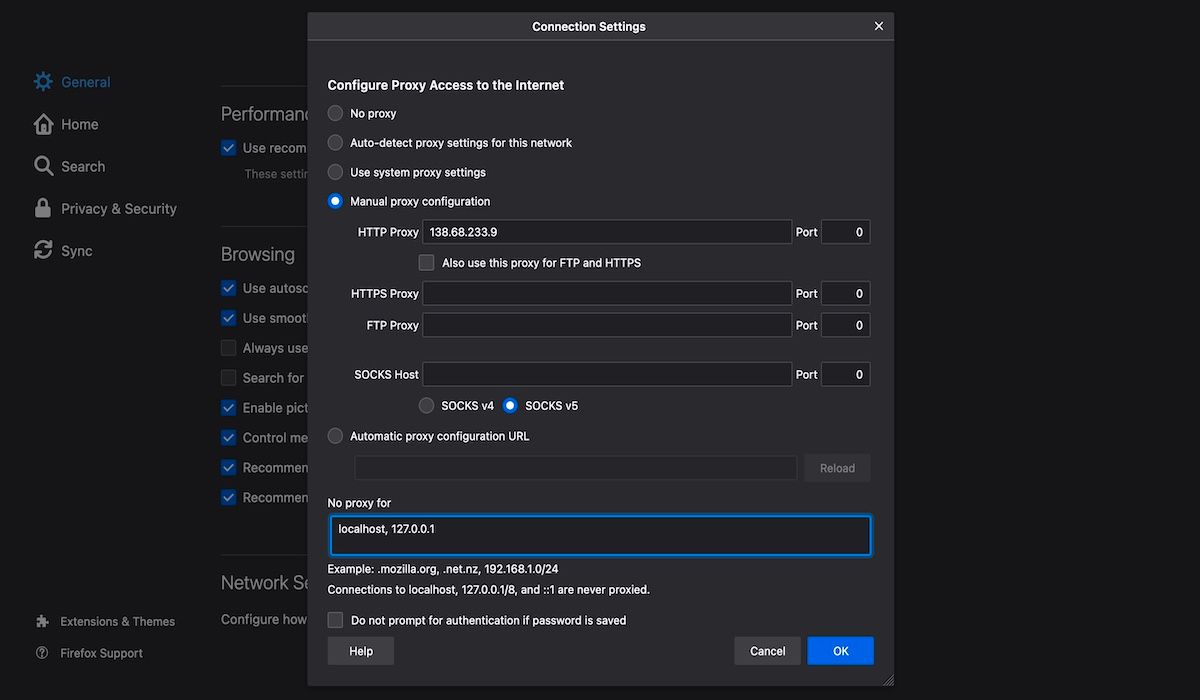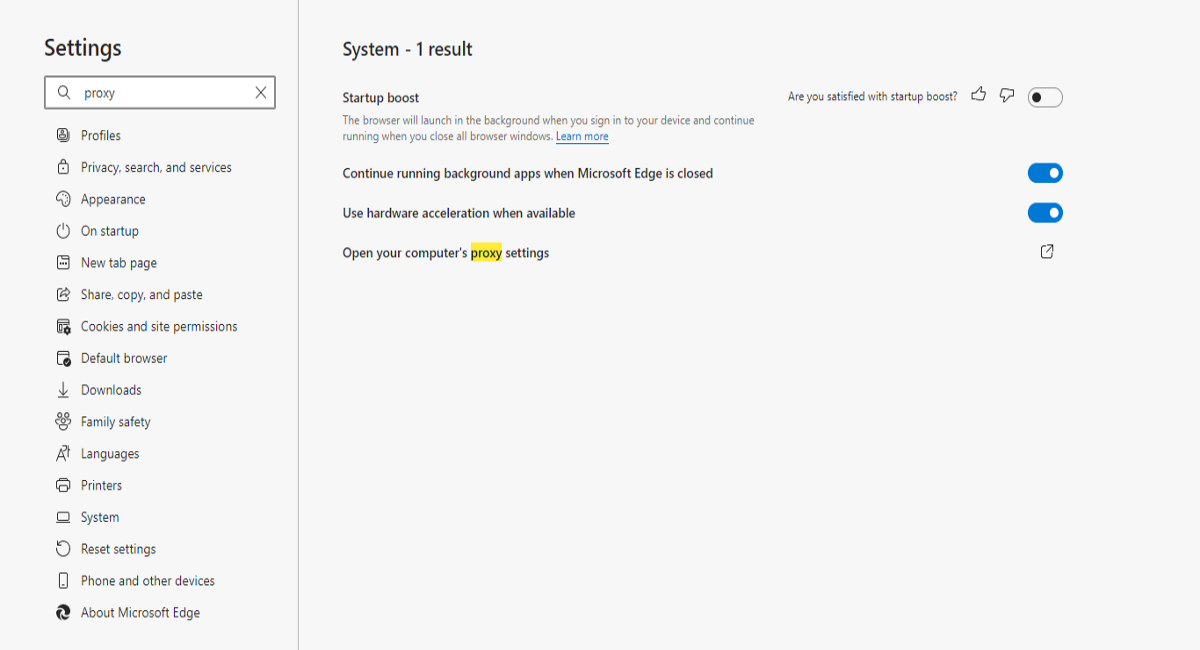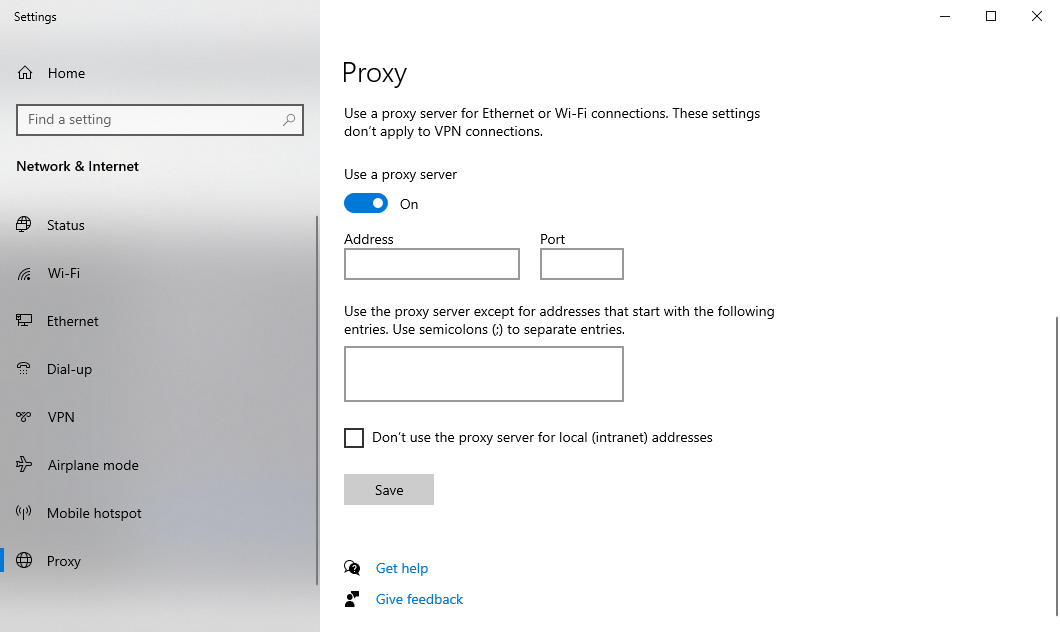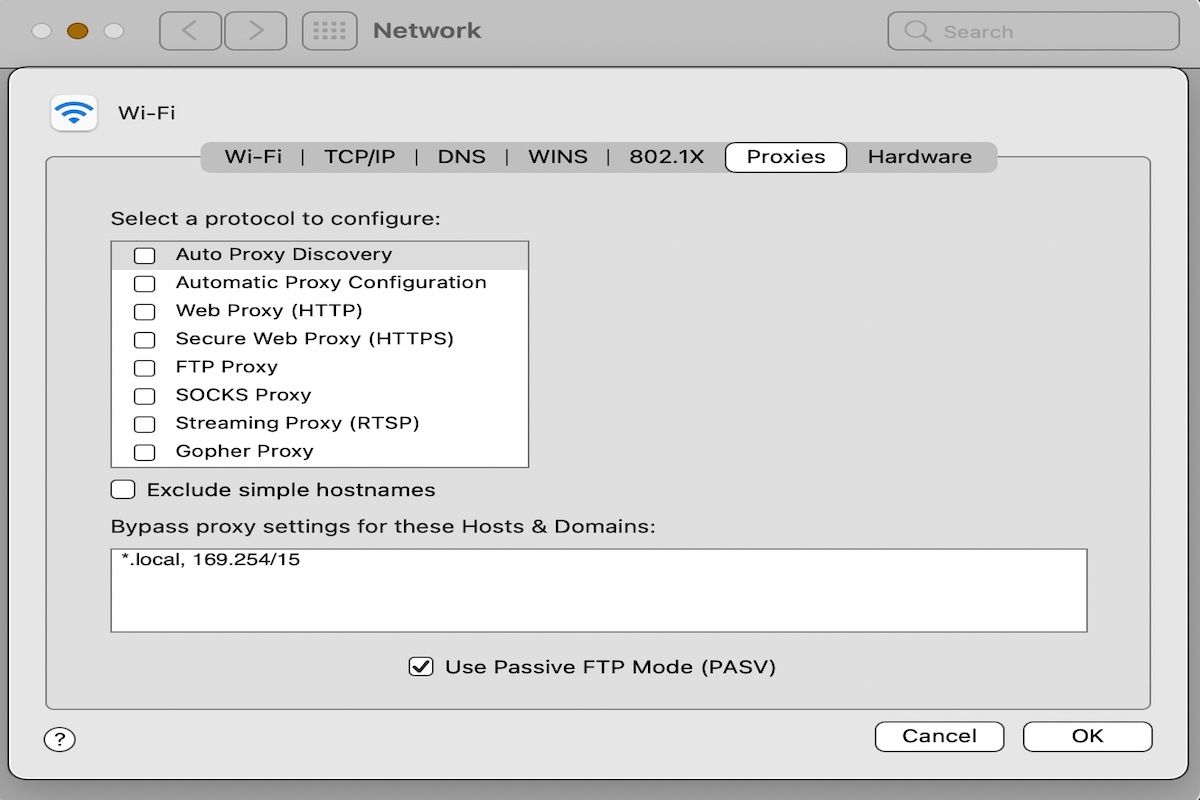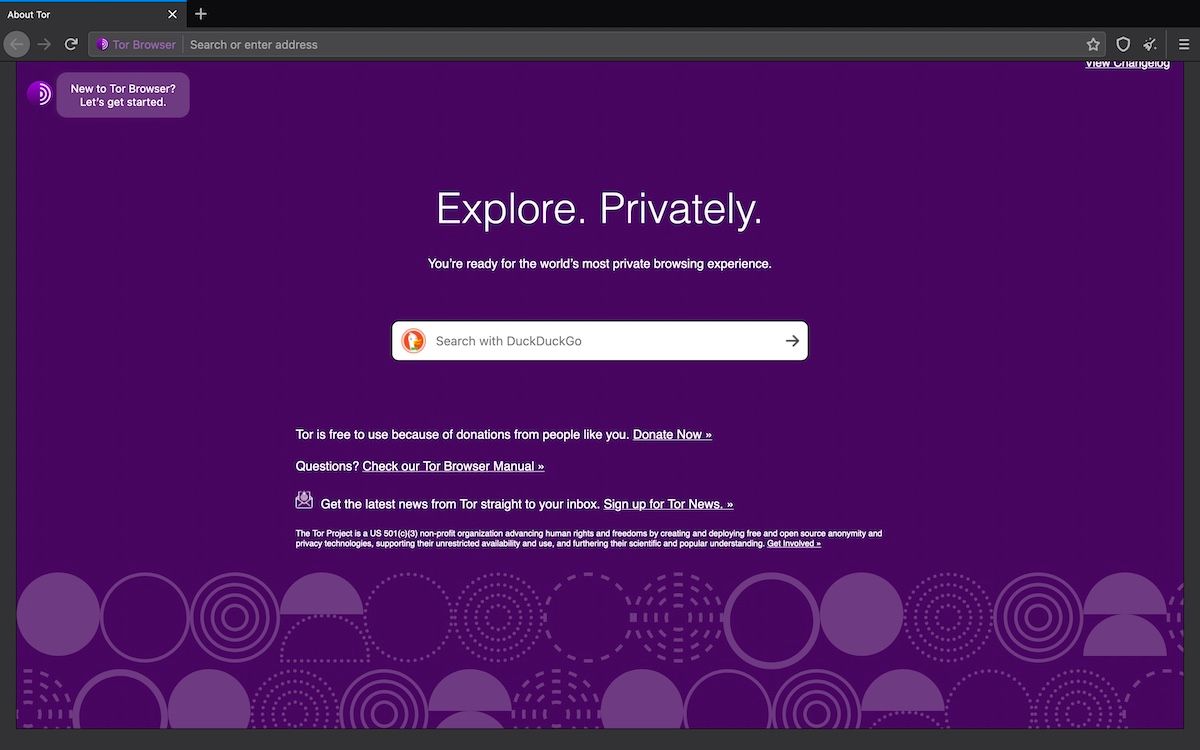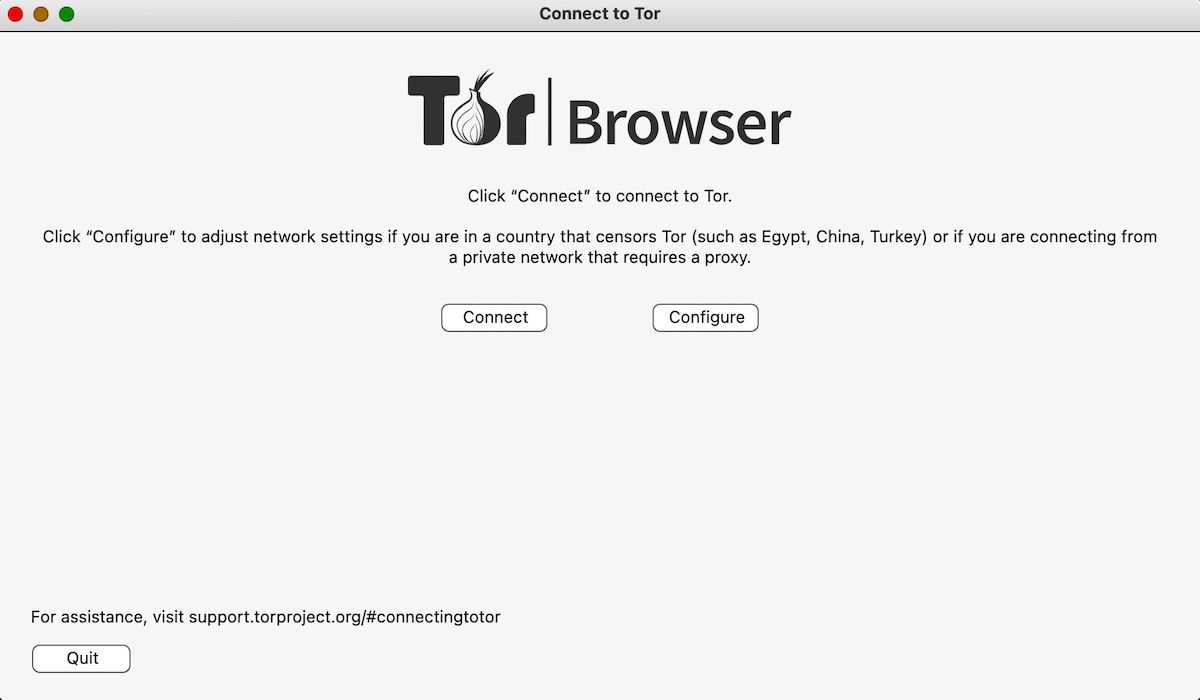As the notion of privacy gets trampled on with each passing year, online privacy only becomes even more important.
That's why many people use fake IP addresses. To be clear, "fake IP address" is a bit of a misnomer that implies creating a new one out of thin air. That's not possible. The best you can do is hide your IP address behind someone else's already-existing IP address. This is called IP masking. So how do you spoof your IP address?
1. Use a VPN
VPN stands for Virtual Private Network, but is much simpler than it sounds. Basically, you can connect your computer or device to someone else's network, then browse the web through it. Whatever activity you're doing looks like it's coming from them, not from you.
When you connect to a VPN, you're masking your IP address with one of the IP addresses on that network. To trace the traffic back to you, the VPN would have to give you up (or your IP address would have to be revealed via DNS leak).
For best results, use a paid VPN service because free VPNs come with too many risks and downsides. The most important one is that you can never quite trust a free service. Are they selling your data? If asked, would they give up your true IP address? It does happen.
As such, we only recommend using a logless VPN. Such VPNs don't keep activity logs, so they can't give up your IP address even if requested. Plus, most logless VPNs encrypt all of your traffic to and from the network, preventing any snooping by ISPs or governments.
VPNs are useful in so many circumstances, but there are too many myths about them that might put you off; you should dispense with misinformation and use a VPN for secure searching.
Which Is the Best VPN For You?
ExpressVPN and CyberGhost are both excellent options. If neither suits you, have a look at our overview of best VPN services. Long story short: whichever service you pick, you just download the app, run it, and use it to connect to the VPN on demand. It's really that simple.
Use this link for up to 49% off ExpressVPN plans!
2. Use a Web Proxy
A web proxy works in much the same way as a VPN. You connect to the proxy server, then all your web traffic flows through the proxy server. As such, your IP address gets hidden by the proxy server's IP address.
But there are two major differences between proxy and VPN.
Firstly, web proxies are typically unencrypted. Even if your IP address is masked by a proxy, the traffic itself can still be sniffed by ISPs and governments. Not only that, but some websites may still be able to see your real IP address using JavaScript and the now largely-defunct Flash, which are another set of threats to your online security.
Secondly, some browsers let you route only browser traffic. To use a web proxy, you go into your web browser's settings and manually input the proxy server's IP address. This allows applications and devices outside the web browser, like Skype, to still use your actual IP address.
Find a free web proxy using a site like PremProxy or Proxy List. Using a proxy server in your country will keep it fast, but using a proxy server in another country can be useful for bypassing region-blocked content and adding a tiny layer of extra obscurity.
How to Set Up a Web Proxy in Firefox
- In the browser, select Preferences from the dropdown menu in the top-left corner.
- In the General section, scroll down to Network Settings.
- Click on Settings.
- Select Manual proxy configuration, then type in the proxy's address and port in the HTTP Proxy field.
How to Set Up a Web Proxy in Microsoft Edge
- On the homepage, click on three dots from the top-left corner.
- Select Settings.
- Search for proxy in search settings, and selectOpen your computer's proxy settings.
- In the Settings window, toggle the Use a proxy server option, and type in the proxy's address and port in the Address field.
- Click on Save to finalize your proxy setup.
How to Set Up a Web Proxy in Chrome, Opera, Vivaldi
- In the main menu, select Settings.
- Under Network, click Change proxy settings...
- In the Connections tab, click LAN settings.
- Enable Use a proxy server for your LAN, then type in the proxy's address and port in the Address field.
Note: Chrome, Opera, Vivaldi, and other Chromium-based browsers do not have a built-in browser-specific proxy feature. Instead, they only use system-wide proxy settings. However, you can use an extension like Proxy Switcher & Manager to use web proxies that only affect browser traffic.
3. Use Public Wi-Fi
Instead of routing your traffic through another person's network, you can opt to connect directly to their network—and the easiest way to do this is to hop onto public Wi-Fi.
The funny thing is that this is really the only way to hide your home IP address. When you're on public Wi-Fi, there's no way for someone to trace it back to your home. And if it's a popular hotspot (e.g. Starbucks), your activity will be obscured by dozens of other users at any time.
But remember that public Wi-Fi has its risks.
By default, most public Wi-Fi hotspots are unencrypted. All your activities while connected can be seen by anyone else on the network (if they're sniffing it out), which includes login details for websites like banks and e-commerce shopping. Public Wi-Fi hotspots can also spread malware infections to your device.
On top of this, there are several other ways for hackers to steal your identity on public Wi-Fi. So while you might be hiding your IP address, you're still opening yourself up to a whole host of other privacy and security risks.
4. Use Tor Browser
Tor browser, sometimes also called the Onion router, is a free browser that hides your IP address every time you connect to the internet. It does this by connecting you with the Tor network at the start, which transmits your data through random relay servers hosted by worldwide volunteers.
For most people not living in authoritarian countries like China, Venezuela, etc. (where Tor is banned), it's a handy tool to have in your arsenal of privacy solutions.
To get started, go to the official Tor website and install the browser from there. When the setup is complete, click on Connect. The Tor browser will then link up to the Tor network. This could take a few minutes, so you'll have to wait a short time.
When it's done, you're free to browse the internet anonymously. If you're using Tor for the first time, though, make sure that you read up on all the online security tips about using Tor efficiently. They are given on the homepage itself!
And That's How You Can Hide Your IP Address!
Now you know all the different ways you can mask your IP address. If you're like us, and just can't accept that "big brother" is prying on you all the time, these tricks will be enough to get started with securing your online anonymity.


